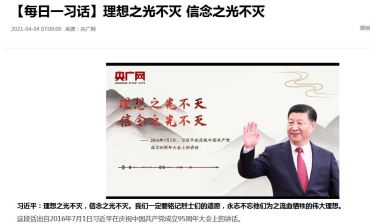–
Friday nights in Sanlitun are reportedly busy:
Increasing numbers of people are going around maskless too. Fear of the virus is receding in Beijing, at least among the young. Most have already been infected anyway.
Reactions abroad aren’t that sanguine: those who dare to, introduce controls.Passengers arriving in Taiwan from China have had to undergo nucleic acid tests since Wednesday (December 28), South Korea has announced restrictions on visa for Chinese travellers until the end of January, Italy, Spain, the United Kingdom and France have introduced restrictions or are about to do so, but Germany is too busy working on its national security strategy – not least because the federal states demand to participate in its definition.
–
The State of Xi
The Chinese leadership, according to Xi Jinping at the Chinese People’s Consultative Conference’s tea meeting on Friday, has reason to celebrate:
We have solemnly celebrated the 25th anniversary of Hong Kong’s return to the motherland, resolutely fought against “Taiwan independence” splittist behavior and foreign forces’ interference. We have continued to promote great-power diplomacy with Chinese characteristics and maintained overall stability within the general external environment. These successes haven’t been easy to achieve. They are the fruits of united struggle by the entire party, the entire army, the entire nation’s nationalities – the fruits of tenacious struggle.
我们隆重庆祝香港回归祖国25周年。我们对“台独”分裂行径和外部势力干涉进行坚决斗争。我们继续推进中国特色大国外交,维护外部环境总体稳定。这些成绩来之不易,是全党全军全国各族人民团结奋斗、顽强拼搏的结果。

Deng Yuguan, a regular columnist for the Chinese service of the “Voice of America”, believes that his (rather gloomy, apparently) predictions of last year, concerning China and Xi Jinping’s government, have come true. Among those, China’s external environment hasn’t been favorable in 2022 (外部环境和中国面临的地缘政治让中国好起来的因素没有出现). The party leaders with Xi as the core etc. would agree: “a turbulent and unsafe environment outside China’s borders” (外部环境动荡不安,给我国经济带来的影响加深) is what they called it after their annual economic work conference on December 15 and 16.
–
Deng sanctimoniously deplores that the situation now was even worse than his predictions, and that “Xi’s image has quickly fallen from his divine pedestal” (习的形象从高高在上的神坛快速跌落). That said, it’s just Xi’s image, not the guy himself yet, and some of the examples Deng cites to prove the great helmsman’s decline are as evil as you’d expect, but, by Chinese standards, also rather trivial: the Li Tiantian “incident” (李田田事件[编辑]), tennis star Peng Shuai’s sexual-assault allegations against Zhang Gaoli and her disappearance, and the “Xuzhou chained woman incident”. Then Deng moves to China’s lockdown policies, and to what turned out to be “the failure to fight the pandemic” (抗疫的失败对习的权威是巨大打击). Those, of course, are real blunders, but his conclusions may still be somewhat far-reaching, concerning Xi’s reign.
–
There had been some ups and downs already, such as the trade standoff with the Trump administration, but every time, Xi had been able to defend his status – most recently by stopping the spread of Covid within China, successfuly sold as Chinese victories over the West to the Chinese public (although only for a while, until people lost patience), writes Deng.
He doesn’t go as far as to suggest that Xi will be toppled, but
Now, he has started his third term at the 20th party national congress with a unified Xi team, but the failure to fight the pandemic – while it apparently hasn’t hurt his grip on power – has seen him crossing the peak of his power and authority, and entering a downward spiral.
如今,他虽然在二十大如愿以偿开启第三任期,并建立了一个清一色的习氏班子,抗疫的失败看起来并未动摇他对权力的绝对掌控,可从毛的案例来看,他跨过了权力和权威的巅峰期,进入下行通道。
Comparing Xi’s situation with Mao’s after the latter’s numerous setbacks, Deng doubts that Xi would be able to overthrow everything that opposes him and restore his power and authority that way. On the other hand, while weakened, he isn’t likely to be sidelined either, writes Deng, and so much for the rendition of his VoA column.
–
If the U.S.-led policy on semi-conductor restrictions on China should turn out to be successful, Xi’s greatest mistake will probably turn out to be China’s “more assertive” role after 2012. The “wolf-warrior diplomacy” was utterly useless (except for those attacked by it – Sweden, Lithuania, South Korea and many other countries have gained new insights on what a “powerful” China will do, and the U.S. seems to have gained some insights, too. Much of the “turbulent and unsafe environment outside China’s borders” (CPC speak, see above) is a world made by China itself. Beijing hasn’t been powerful enough (yet) to shape the world in a way to its liking, but they’ve successfully left unpleasant turds all through the five continents.
–
Meantime, not all the news is bad for Beijing.
Tired of a too-strong and newly weaponized greenback, some of the world’s biggest economies are exploring ways to circumvent the US currency,
notes a signed Bloomberg article. That’s not to say that the dollar is going to hell in a basket, according to the authors, but both sanctions and “[t]he he US currency’s rampant gains have [..] made Asian officials more aggressive in their attempts at diversification“.
So, let’s think of the dollars future reign (for whatever period) as something like Xi Jinping’s reign over China (according to Deng’s VoA column): possibly somewhat dented, but dominant all the same.
________________
Related
新年茶话会,习近平发表重要讲话, CPBS, Dec 31, 2022
________________
–








[…] temporary, too, just as they are at Argentine Radio and TV, and disputes over journalistic content don’t appear to…